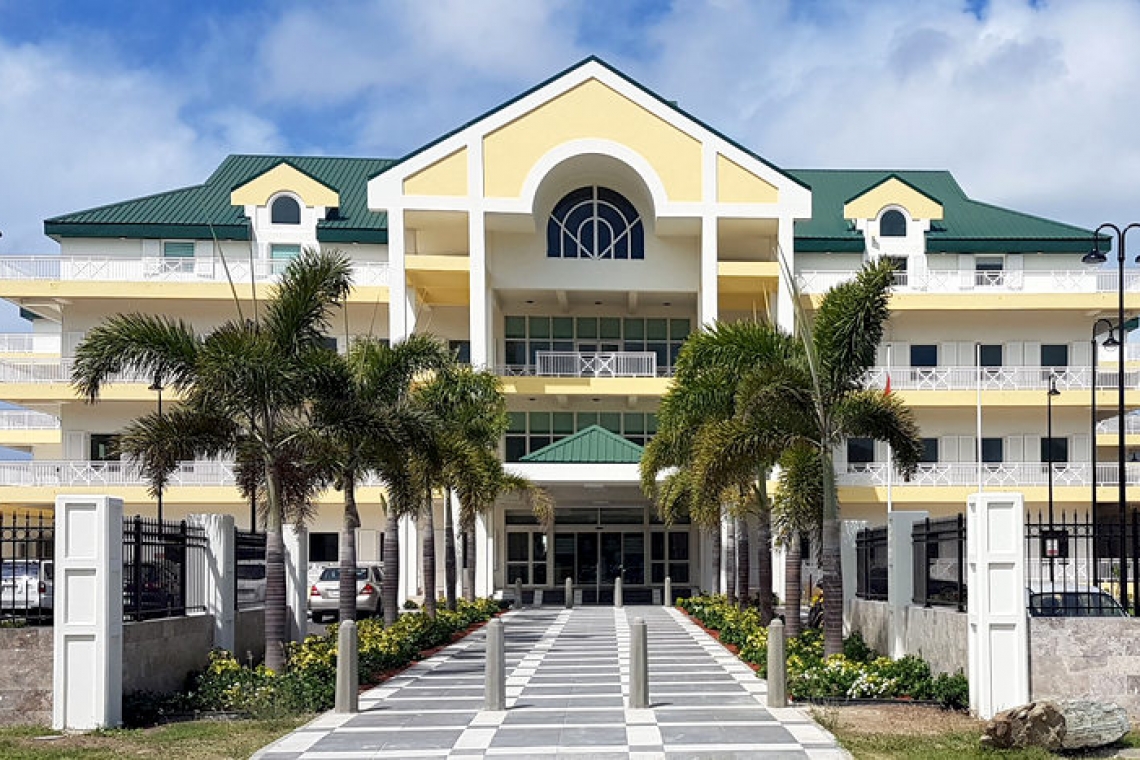PHILIPSBURG--Payroll, income and food support to the community are among the emergency measures proposed in government’s draft stimulus plan to help cushion the effects of COVID-19 on St. Maarten.
The proposed measures in the plan include a payroll supplement between NAf. 750 and NAf. 1,350 for employees at risk of being laid off and an income supplement between NAf. 750 and NAf. 1,350 for active plate holding bus drivers, taxi drivers, independent tour operators and licenced market vendors. In the area of food support it is recommended that monthly NAf. 450 food vouchers are given to qualifying persons in the above-mentioned categories.
An update of the maximum price list, which should include canned foods, rice, vegetables, baking products, baby products, sanitary products, personal hygiene products and water et cetera coupled with increased enforcement suggested for implementation. In terms of general relief measures, the proposal suggests a GEBE utility bill fuel-clause reduction for six months and no disconnections for this period. GEBE has already announced this reduction.
A decrease of fuel prices as of March 31 is another proposal in the plan. Telecommunication providers relaxing payment deadlines, disconnection dates and increasing data plans is another proposal as well as deferred car lease payments from car dealerships; a moratorium on loan for three to six months from banks with no capital payments or interest and a deferral on the payments of government student loans for three months.
Other proposals include special working capital to corporate clients by several banks (case by case basis); the postponement 2019 Income Tax Return filing to August 31, 2020; the postponement of filing and payment of Provisional Profit Tax Return until June 30; an extension on the filing of Final Profit Tax Return and extended payment arrangements for businesses experiencing cash flow problems. The latter is proposed to be handled on an individual basis and evidence of hardship will be required.
The suspension of audits (includes personal audits) and business liquidity support loans and an increased support to rent committee as well as encouraging landlords to not evict tenants and possible suspension of payments or reduced payments (considering relief provided by the banks) are other proposals in the plan.
According to the plan the necessary measures of closing the borders to control the spread of the virus has resulted in a practical halt of all economic activities on the island. The foremost affected are all economic activities directly related to tourism, the frontline or first tier.
Economies across the world will be negatively impacted by the COVID-19 pandemic and St. Maarten is no exception. The severity of the economic and social impact can be considered even more profound than others in the region or internationally as the country finds itself in a recovery phase after Hurricanes Irma and Maria.
“There is already a high level of uncertainty, which is further exacerbated by not knowing how long this pandemic will last and how long it will take the worldwide tourism sector to start recovering. This coupled with St. Maarten heading into its low- and hurricane season shortly, puts the island in a very peculiar position.
“The government acknowledges that it is imperative that adequate measures are taken to lessen the economic and social impact of this new shock and to achieve a rapid recovery of the economy. Particularly in the tourism sector, businesses that are severely affected will need financial assistance and for persons who risk losing their jobs, the creation of a social safety net is essential,” as it was stated in the stimulus plan.
“Given St. Maarten’s situation, the approach taken for this shock has to be a combined approach with various entities in our economy. Therefore recommended relief measures and economic stimulus include a monetary component, additional support for necessities, direct relief and indirect-third party relief for three to six months to commence in April.







